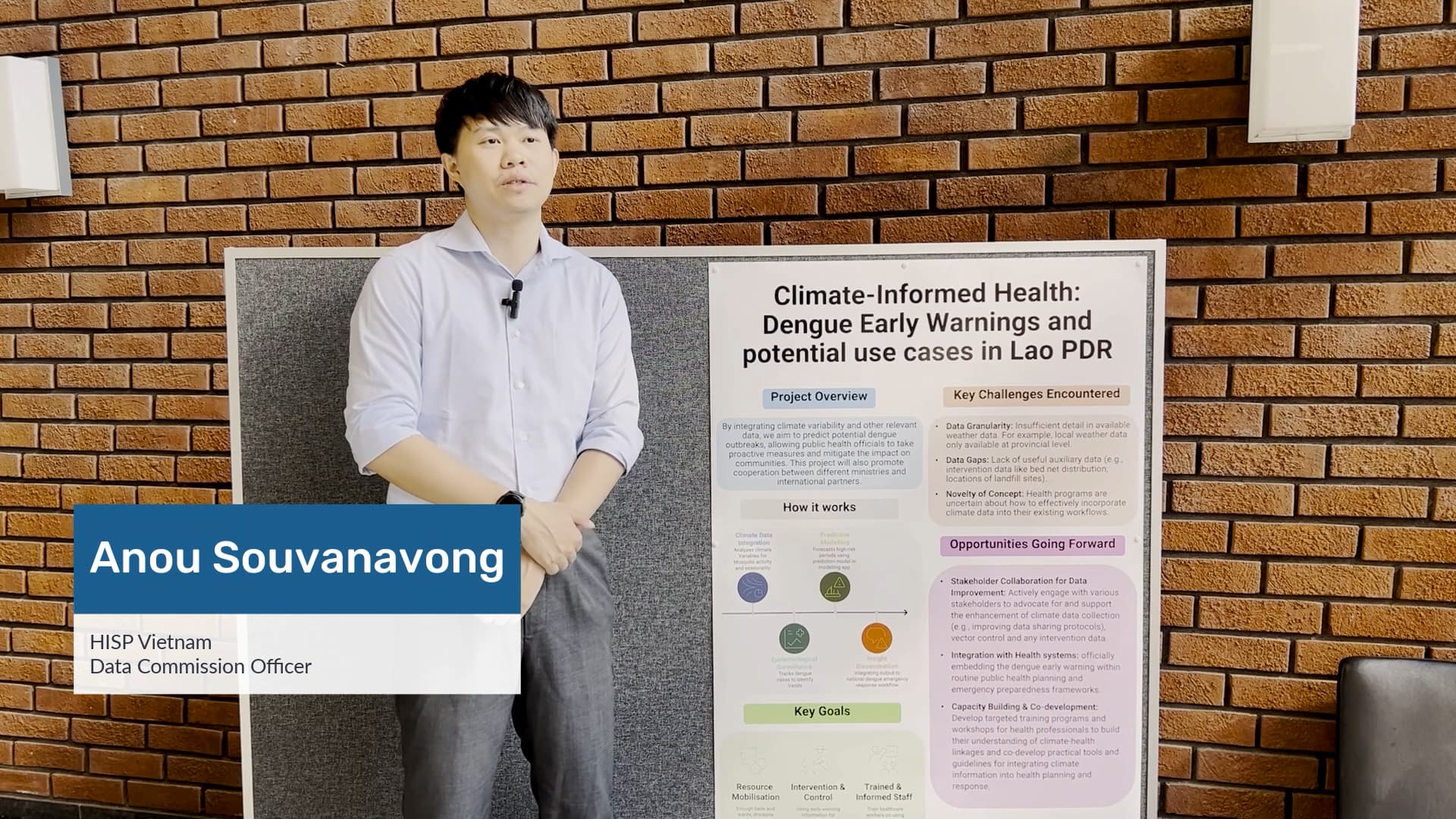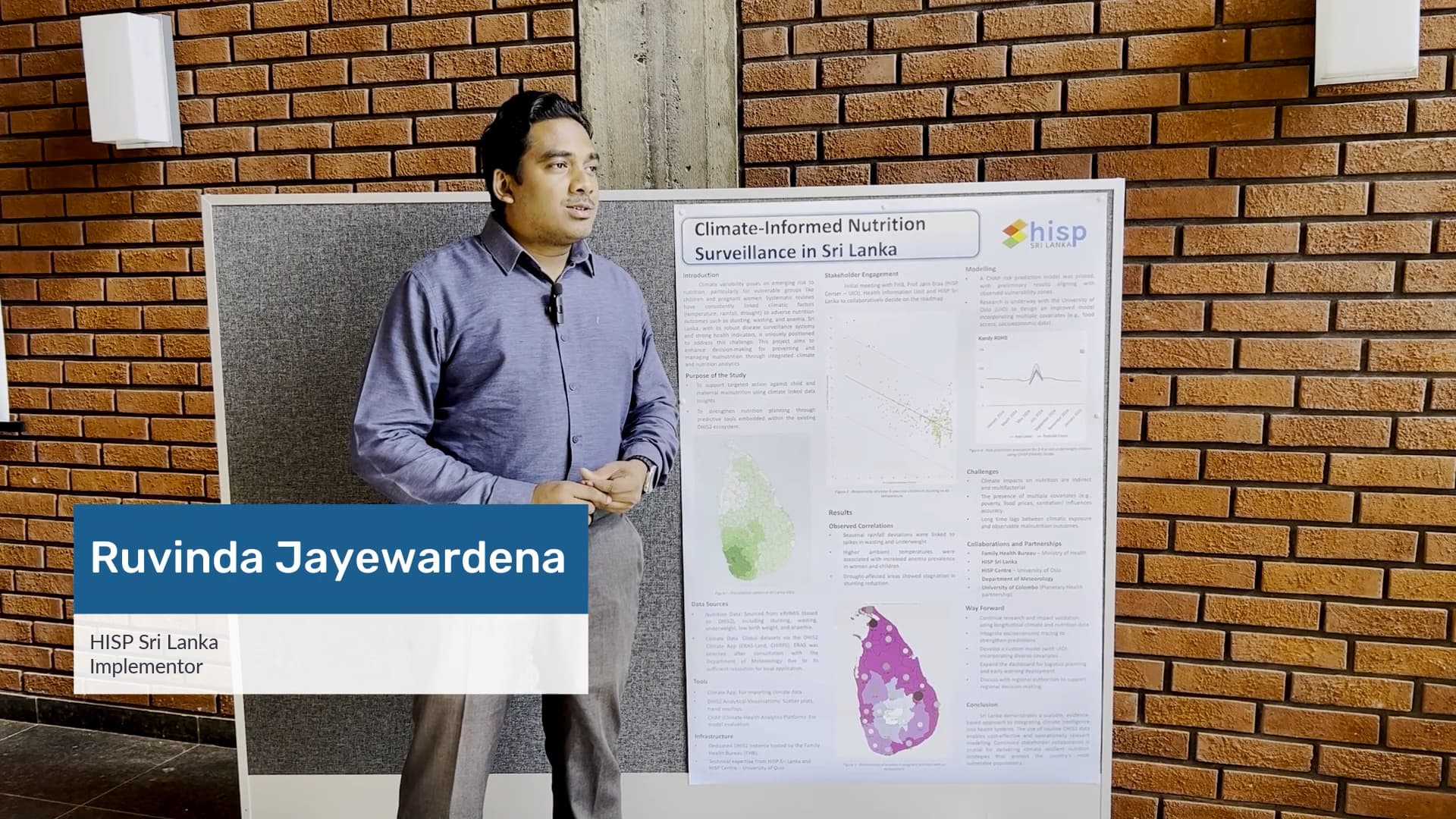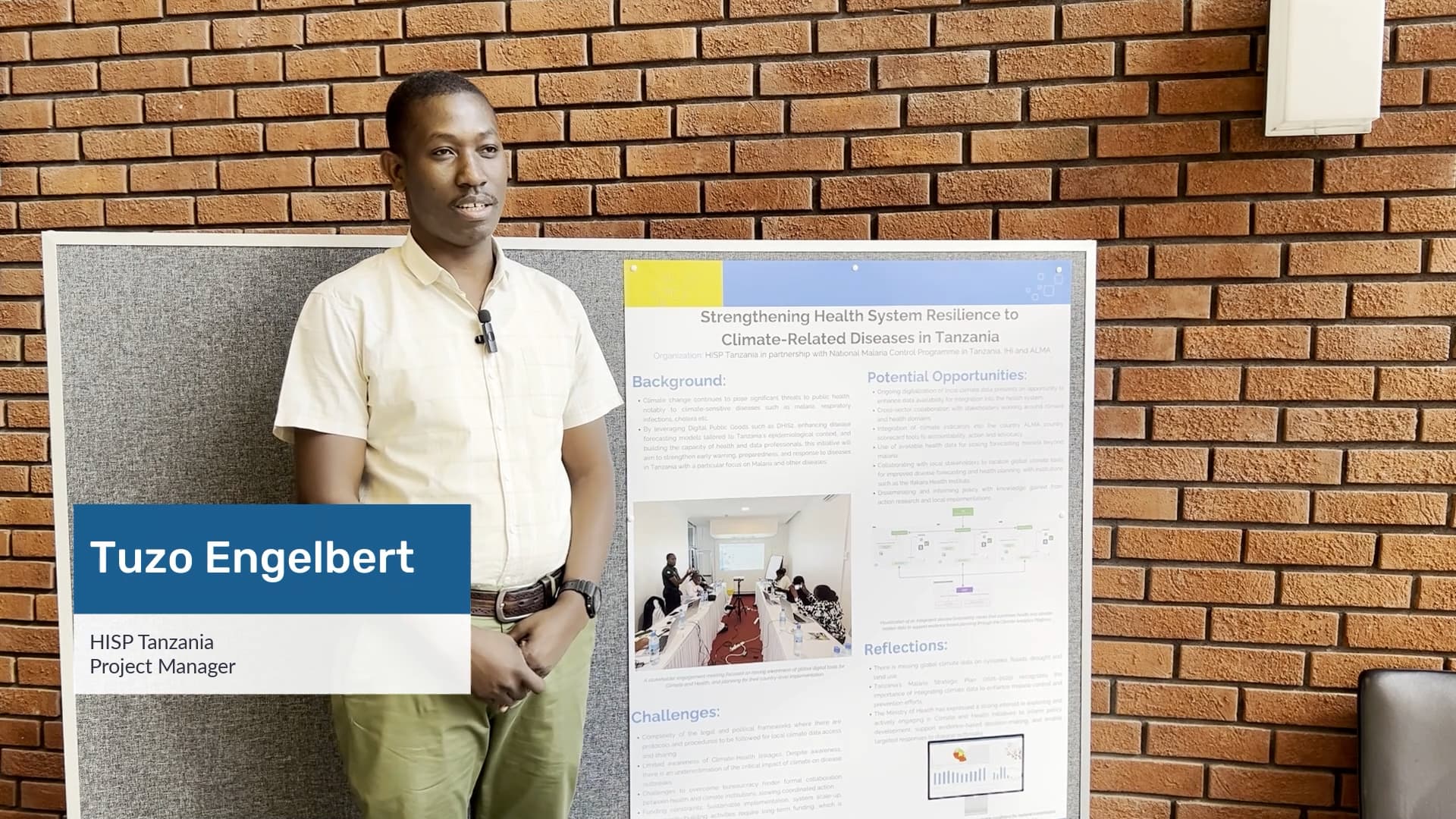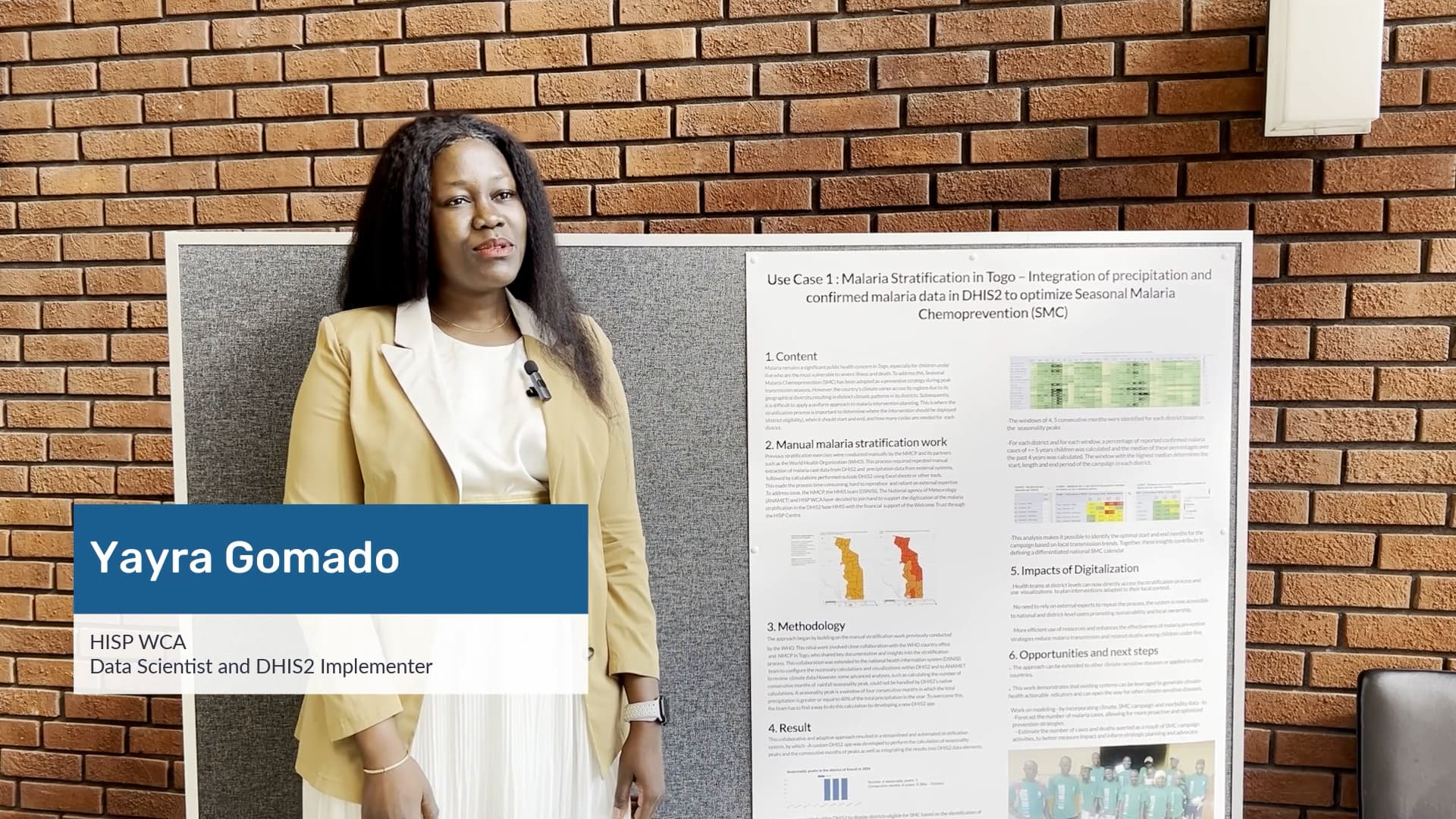We are excited to share new video highlights featuring innovative work from the DHIS2 Community. At this year’s DHIS2 Annual Conference, we interviewed several attendees who presented their work as part of the DHIS2 Climate & Health project. These short presentations highlight how DHIS2 is supporting climate-informed health interventions across a wide range of use cases.
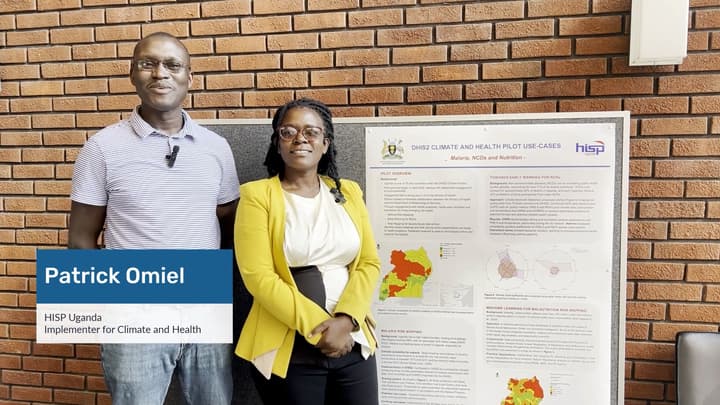
Patrick Omiel and Joan Nakibuuka of HISP Uganda share experiences with the DHIS2 Climate & Health project in Uganda, highlighting close collaboration with the Ministry of Health and meteorological services. The work focuses on practical use cases, such as malaria suitability risk mapping, early warning systems for malnutrition, and exploring climate impacts on non-communicable diseases. This initiative supports Uganda’s Health National Adaptation Plan by integrating climate data like temperature, rainfall, humidity, and air quality with health data to build a climate-resilient health system. @omielp
Anou Souvanavong of HISP Vietnam (Laos Office) presents the ongoing work in Laos on potential climate and health use cases, specifically focused on developing a dengue early warning system, as part of the DHIS2 Climate & Health project. @anou
David Mondlane of HISP Saugiditus, shares insights about the innovative work done in Mozambique on connecting climate data with health data to improve malaria outbreak forecasts with DHIS2. He discusses the challenges faced, the integration of climate variables such as rainfall and temperature, and how this new approach enables proactive malaria outbreak prevention in Mozambique. @David_Mondlane
Ruvinda Jayawardena from HISP Sri Lanka discusses efforts focused on three main use cases: climate’s association with nutrition, the impact of air quality on diseases, and changes in vector-borne diseases related to climate. Progress is being made, particularly in nutrition surveillance and air quality impacts, with promising modeling results predicting nutrition status trends. @Ruvinda_Jayewardene
Tuzo Engelbert from HISP Tanzania presents the ongoing work in Tanzania on integrating climate data into national health information systems, with a particular focus on malaria surveillance. The initiative leverages DHIS2-based systems to harmonize malaria surveillance data, integrate climate variables, and use predictive modeling to inform community interventions and health planning. @tuzoengelbert
Yayra Gomado from HISP WCA shares how DHIS2 is being used in Togo to digitize malaria risk stratification by integrating climate data such as rainfall into the health system. This work improves real-time decision-making and strengthens interventions like seasonal malaria chemoprevention, with potential to expand to other climate-sensitive diseases. @Yayra_Gomado
Learn more about DHIS2 for Climate & Health
https://dhis2.org/climate/
